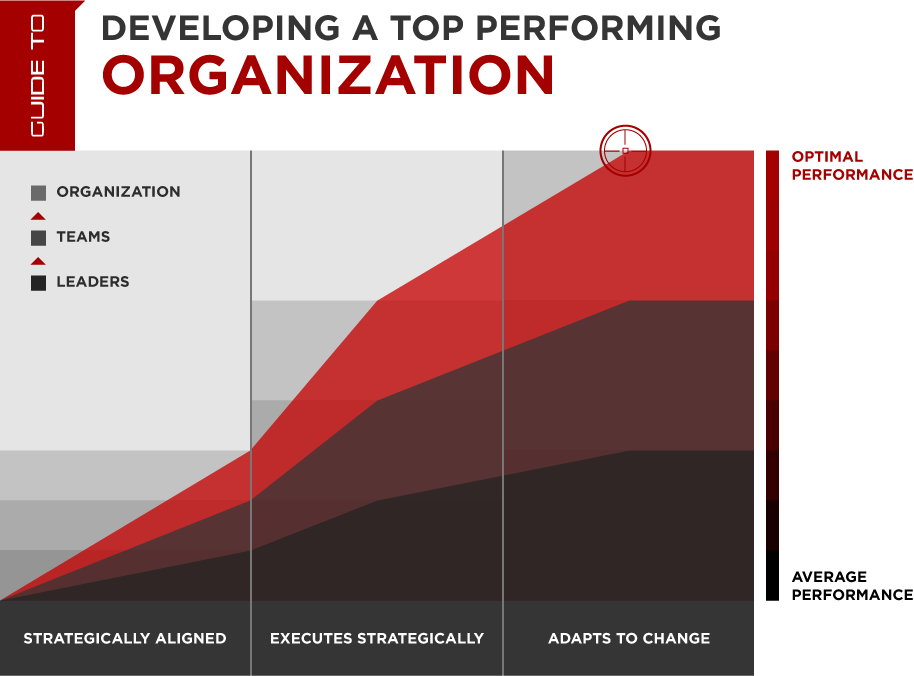
We Develop High Performing Teams,
Leaders, and Organizations
How susceptible are you to failure?
Take the Online Pulse Assessment
How susceptible are you to failure?
Take the Online Pulse AssessmentEffective execution is grounded in principles of clarity, commitment, translation of strategic goals to daily tasks, enabling sponsorship, synergistic teamwork, and accountability.
Download DatasheetWe coach and mentor teams to develop execution plans that yield maximum performance and optimal efficiency, while supporting and facilitating cross-functional activities. This directly produces behaviors that result in better organizational performance. Equally important, disciplines and behaviors that improve the quality of internal discussions and collaborative thinking, create engaged and motivated workers, and develop leadership skills.
Request More InformationExecution is a notorious and perennial challenge. Even at the companies that are best at it –important strategic and operational decisions are still not translated into executable action quick enough. Companies fail most often as a result of their approach to execution shortfalls – attacking their execution problems primarily or solely with structural or motivational initiatives. Such failures can almost always be fixed or avoided by ensuring that people truly understand what they are responsible for and who makes which decisions - and then giving them the information they need to fulfill their responsibilities. With these two building blocks in place, structural and motivational elements will follow:
We coach and mentor teams to strategically develop execution plans that yield maximum performance and optimal efficiency, while supporting and facilitating cross-functional activities, which in turn produce behaviors that result in better organizational performance. Equally important, disciplines and behaviors that improve the quality of internal discussions and collaborative thinking, create engaged and motivated workers, and greatly extend leadership skills.
The Executional Excellence for Teams Program equips your team with the skills necessary to perform and execute optimally:

Discipline in execution empowers an organization to accomplish its strategic objectives. Successful execution requires leaders, team members, and whole teams to precisely identify and narrowly focus on the most impactful goals, concentrate their individual and collective efforts on high-impact actions, transparently share real-time results, make timely course corrections, and ensure mutual accountability. Effective execution is grounded in clarity, commitment, correlation of strategic goals to daily tasks, and synergistic teamwork.
As former military aviation squadron commanders and instructors, we have the knowledge and first-hand experience in executing strategies under extremely stressful conditions with precise accuracy and near-zero tolerance for failure. We leverage our experience to coach and mentor corporate teams - enabling them to deliver results on a consistent basis, drive executional excellence and accelerate performance through building alignment, winning mindshare, and growing the capabilities of others.

Result: Exceeded business unit annual sales target with 95%.
We have developed a time-tested, proven system geared towards developing corporate cultures of excellence by leading executives, teams, and even entire organizations through an experiential learning process to adopt and apply practical principles that revolve around the core tenants of focus, discipline, and accountability – the same methodologies that gave us the tactical advantage in real-life combat situations and enabled us to succeed while operating in unforgiving and hostile environments.
We will help you achieve that same level of success, maximize the value of your human capital, and enable your greatest resource - your skilled employees - to exercise initiative and produce outstanding results. These are some of a broad set of disciplines your team will be introduced to:
Clearly communicated and agreed-upon objectives - the building blocks that comprise a high performing team rest on the foundation of having a common purpose, specific measurable goals, and a standardized working approach.
A high performing team fosters an environment that supports open communication and approachability based on rules of behavior, decision-making protocols, and interactions that coincide with the organization’s corporate culture.
Teams operate best when membership is relatively small but carefully constructed to include the necessary skills, expertise and experience to get the job done.
Performance expectations for team members should be clearly delineated, including precise descriptions of individual responsibilities and how these responsibilities are interconnected and in alignment with the broader organizational vision.
